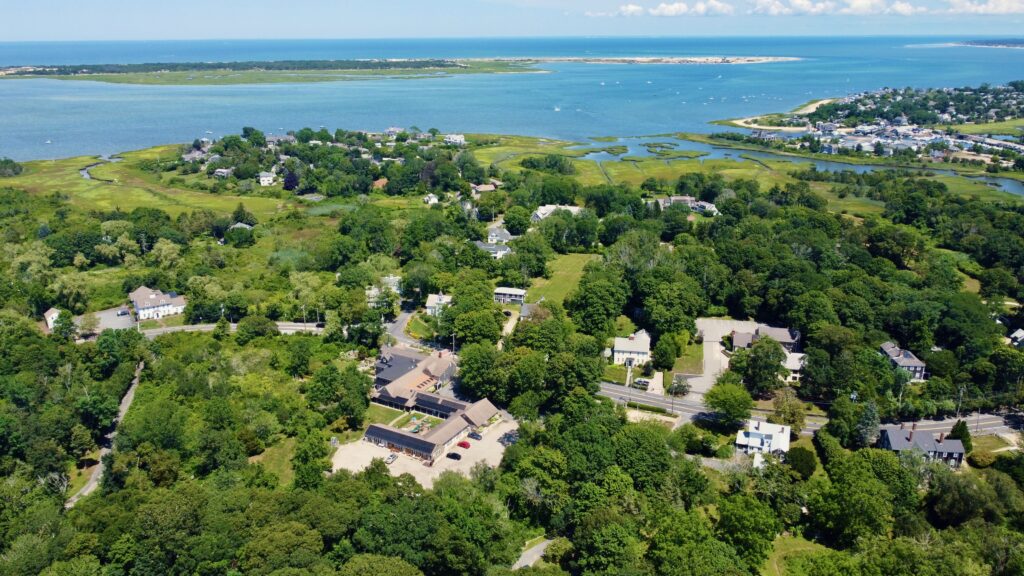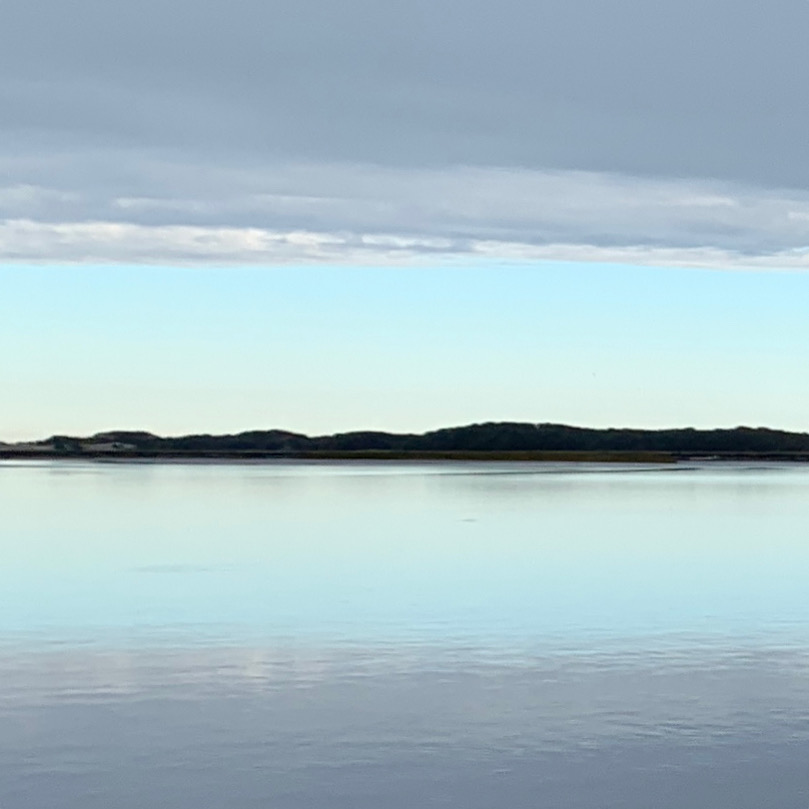A Beautiful Peninsula

Saint Mary’s Church, Barnstable, is among the most prominent Episcopal churches on Cape Cod, Massachusetts. This beautiful peninsula serves as a destination for retirees, semi-retirees, and second homeowners, many of them eager to undertake volunteering activities. In summers, the Cape attracts thousands of visitors intent on sharing the pristine beaches that border Cape Cod Bay and the Atlantic Ocean. For both temporary and permanent residents, the peninsula offers a wide variety of cultural, educational, scientific, sporting, and other recreational opportunities.
St. Mary’s stands within walking distance of the charming center of historic Barnstable Village. The eponymous Barnstable County encompasses the entirety of Cape Cod. It comprises fifteen unique towns, each with its own distinct character; we draw our congregation from at least half of them. Barnstable Village, located on the “North Side” of the town bordering the Bay, is traversed by the historic Route 6A, known as the “Old King’s Highway.” This holds the distinction of being the largest Historic District in the United States.
People and Products
Cape Cod boasts a rich history and abundant natural beauty. It has been home to native peoples for thousands of years and was the initial landing site of the Pilgrims. Some descendants of the Wampanoag Tribe that the Pilgrims encountered remain on the Cape. Over time, Cape Cod evolved into a vibrant farming, fishing, and seafaring community. Today, its serene landscapes attract individuals from all walks of life, and inspire countless artists, writers, and composers. Residents who trace their families’ roots to old Cape Cod often refer to more recent arrivals as “washashores.” But they obligingly welcome them.
According to the Cape Cod Commission, “Census data shows that Cape Cod’s year-round population has increased since 2010. The 2020 count is 228,996 residents, higher than the count of 215,888 in 2010 and of 222,230 in 2000. The 2020 population count significantly exceeded past projections, many of which anticipated a decline in population.”
The top contributors to the Cape Cod economy’s gross regional product are government, retail trade, healthcare and social assistance, and accommodation and food service.
- MassHire and also here
- Cape Cod Commission
- Data Cape Cod

“Water, Water, Every Where”
The waters that attract beachgoers have made Cape Cod the location of world-class scientific organizations and nonprofits. The village of Woods Hole, in the Cape’s southwest corner, hosts a scientific community of international repute. “Woods Hole is a world center for marine, biomedical, and environmental science,” the website of the Woods Hole Oceanographic Institution (WHOI) notes. “Its reputation in this broad field may seem out of proportion to its small size, yet, in addition to several smaller enterprises and labs, Woods Hole contains two large private organizations (the Marine Biological Laboratory and the Woods Hole Oceanographic Institution) and two federal government facilities (the National Marine Fisheries Service and the U.S. Geological Survey).” Up the road is the Woodwell Climate Research Center which is a major international center for research on climate change.
Other scientific, exploratory, and advocacy institutions include the Center for Coastal Studies in Provincetown and the Marconi Museum in Chatham. The village of Yarmouth Port, next to Barnstable, hosts the International Operations Center of the International Fund for Animal Welfare (IFAW) https://www.ifaw.org. This global nonprofit agency aims to “rescue, rehabilitate, and release animals, and restore and protect their natural habitats.” One of St. Mary’s parishioners is an IFAW executive and an expert on whale conservation. That’s a particularly relevant issue for Cape Cod, which originates several whale-watching trips. For landlubbers, meanwhile, our peninsula is home to the Cape Cod National Seashore, which receives four million visitors a year, as well as other parks, preserves, and natural resources.
In addition, Cape Cod is graced with approximately 1,000 freshwater lakes and “kettle ponds,” many the result of the gradual withdrawal of glaciers thousands of years ago. Their waters and surroundings are the sites of fishing, recreation, and serene enjoyment.
Education and Entertainment
According to the Cape Cod Chamber of Commerce, Massachusetts’ public schools rank #1 in the USA. Cape Cod follows suit with excellent K-12 public schools, nationally ranked charter schools, and special education. Opportunities for higher education include the Massachusetts Maritime Academy, the nation’s finest co-ed maritime college, and Cape Cod Community College, which hosts the Academy for Lifelong Learning and graduate education programs.
Cape Cod is also known for its rich cultural community. This includes museums, music, art galleries, and theaters. The Cape Symphony is a professional orchestra whose repertoire extends “from popular hits to magnificent classics.” Lovers of 20th century art can make a pilgrimage to the town of Truro to see the house in which realist American painter Edward Hopper spent almost 40 summers with his wife Josephine. Women established the Provincetown Art Colony – the oldest of the 19th-century summer art colonies on the East Coast. The first art school there was established in 1899 by Charles Hawthorne. On August 22, 1914, a group of prominent artists along with local businessmen and -women established the Provincetown Art Association.
For fans of 21st century skills, the Cape Cod Baseball League is the premier college summer league in the nation – an institution playing in ten towns “where the stars of tomorrow shine tonight.” The league attracts players from all over the USA who are invited to play here for nine weeks. They have the opportunity to showcase their talent before thousands of free-admission fans and hundreds of Major League Baseball scouts. Indeed, at any given time more than 300 Cape League alumni are playing in the major leagues. St. Mary’s membership includes a former president of the league.
A Cluster of Challenges
Alongside its natural beauty and cultural offerings, Cape Cod faces a number of challenges. Recent years have witnessed an accelerated influx of retirees, second homeowners, and visitors owing to various factors, including the Covid-19 pandemic, the rise of remote work, and the proliferation of Airbnb accommodations. This influx has contributed to an increase in housing costs, the population’s median age, and the number of part- or full-time residents of means. Consequently, it has posed challenges for the local workforce, individuals of low to moderate income, and families with children. Housing accessibility has become a pressing concern for them, as the demand for housing outpaces supply.
Wastewater management and preservation of the fragile coastal ecosystem are ongoing priorities. The Cape is threatened by the impact of climate change, with rising sea levels, increasing storm severity, and other effects. The region also grapples with a labor shortage, food insecurity issues, and transportation considerations https://datacapecod.org/. Another problem involves traffic. Two bridges over the Cape Cod Canal connect the Cape to the Massachusetts “mainland” and the state capital of Boston. Completed in 1935, those bridges were not intended for 21st century traffic. Crossing them before, during, and after summer weekends tries the patience of Cape Cod residents and tourists alike. Efforts are under way to replace them. On a positive note, Barnstable and other towns in our catchment area benefit from the Cape’s proximity to the Boston area, with its rich cultural and educational resources, and its inclusion within the Massachusetts Diocese.
A Welcoming Community
Nestled in the calming ambience of Cape Cod, Barnstable Village offers a unique opportunity for a permanent Episcopal rector to serve a community steeped in history, cultural assets, natural beauty, and spiritual growth – and with very real present-day challenges. Saint Mary’s Episcopal Church, with its welcoming and inclusive congregation and historical significance, stands as a beacon of hope and community support. We ask you to embrace the timeless charm of Barnstable Village, where faith, tradition, and the allure of Cape Cod converge, creating a truly fulfilling ministry experience.
